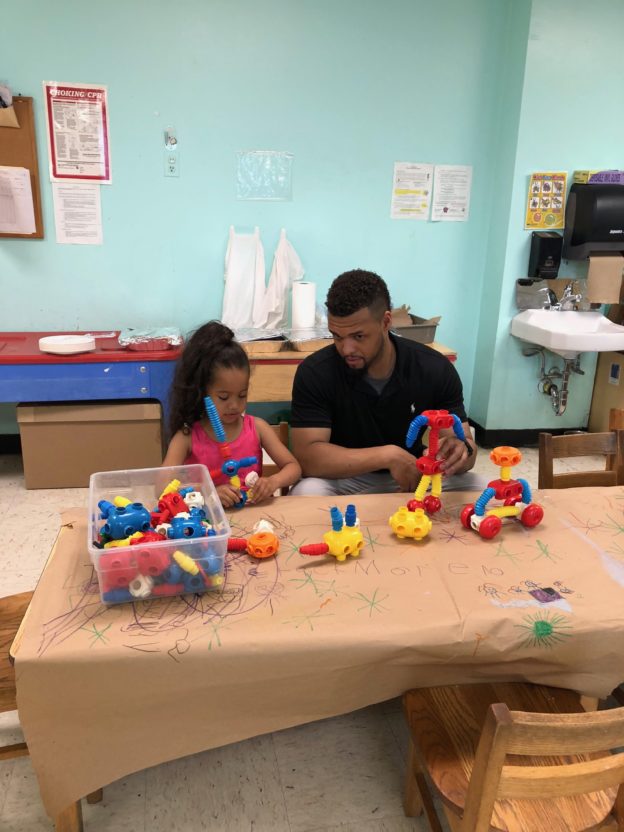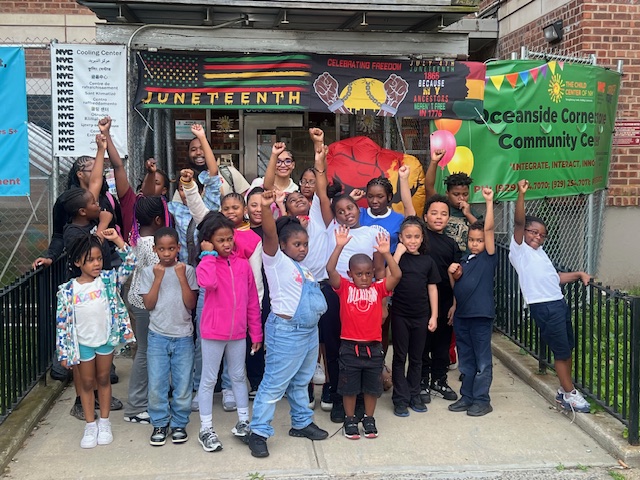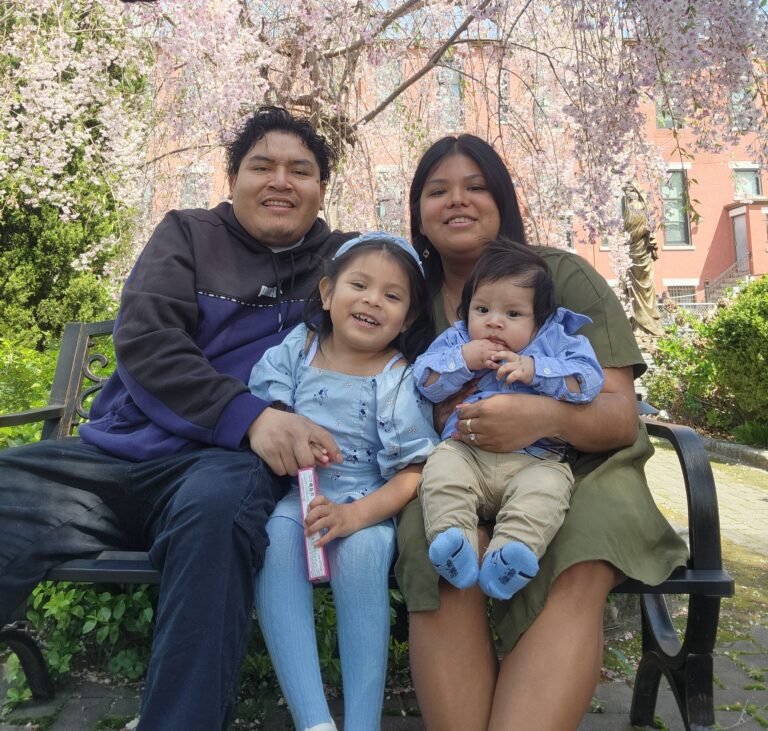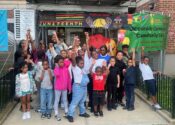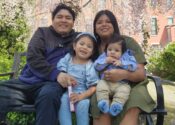By Traci Donnelly
Chief Executive Officer
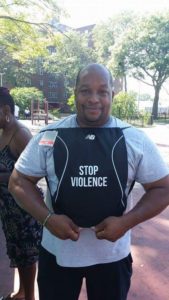
Manny Fiallo Jr.
Far Rockaway lost a giant of the community last year with the death of the incomparable Manny Fiallo Jr. Manny was a larger than life figure who, at the same time, managed to be relatable and approachable, and always had time for you — no matter who “you” were. In a neighborhood that’s seen more than its share of violence, less than its share of opportunity, and was on the verge of losing hope, Manny stood up to change things. He was dedicated to stopping the violence and embracing the potential in every kid. Manny never considered a child — or adult, for that matter — beyond hope, and he showed us he was right.
I’d say his passing left a void in the community, but perhaps the best thing we can say about a leader when he passes is that he leaves not a void, but a legacy. Last weekend, I attended the Manny Fiallo Jr. Men’s Luncheon, hosted by Council Member Donovan Richards in Manny’s honor, and was struck by how much that was true.
The luncheon’s theme was “Decades of Strength,” honoring men who have spent considerable efforts protecting and advocating for their community. I was really moved by it. The diversity of men who were honored (including our own Deep Ghosh) was impressive. They came from every race and background and represented so many different initiatives and aspects of the community. An equally impressive cross-section of the community showed up as guests: Manny’s sister Mercedes Vega was there and spoke about the pain on his early departure. Cornerstone community center directors were in attendance, as were regular members of the community, Council Member Richards himself, and officers from the 101st Precinct, including Community Affairs P.O. Kevin Campbell, who summed up Manny’s legacy perfectly when he said, “It is a lucky and blessed man to leave a quality footprint for young ones to step in.”
It was a day to focus on male role models who show up, teach men how to be men, and impact the community to be a better place. Hearing these men talk about all they’re doing, I realized how much such a focus was needed.
We spend so much time talking about absent fathers and their effect on families and communities, that we sometimes forget about all the dads and other male role models who, despite extreme obstacles, show up every day for their children and the children of the community. There are so many of them, and together they’re an inspiration and an indication that things might be moving slowly, but they’re moving in the right direction.
At the luncheon, I had the pleasure of sitting with Kenny Carter, founder of a grassroots group called FAITH, which stands for Fathers Alive in the Hood. It’s a remarkable group that works to engage fathers, mothers, and families in the community in which they reside. Its members are dedicated to providing all males an avenue toward what they call the essence of manhood — one that emphasizes responsibility and community. The group spearheads everything from gang intervention to employment initiatives to a “Jegna” program, named for the title of distinction in African culture, roughly translated as hero, warrior, soldier, courage, strength, and protection. FAITH has 4.5 thousand followers on Facebook, if that’s any indication that it’s an idea whose time has come. “Fatherlessness is a key cause of imbalance in our communities,” Carter says. “A lot of fathers are not stepping up, period. And a lot of fathers that are filling the void are working all the time. Rent goes up, expenses go up, and wages stay the same, so they acquire another job.” It’s difficult in these circumstances for fathers to be there for the kids, but FAITH helps them find a way, and, equally important, creates a community that supports them.
At The Child Center, we prioritize family engagement and have seen a heartening increase in fathers stepping up. Among our youngest clients — children in our early education programs — we’ve seen father involvement increasing every year. For example, our EarlyLearn program in Corona has been hosting its annual “Father Involvement Play Date Night” since 2015. Every year, the number of fathers and other male role models who participate in this event increases — for a total of 82 fathers this year. This is exciting because, as Program Director Lillian Rodriguez-Magliaro puts it, “We recognize that fathers matter and their role in our communities is important for the success of the children we serve. Many of our fathers don’t get to have quality time with their children because of their work schedule. Our goal is to provide the fathers an opportunity to spend an evening with their children, having a meal together, learning about their educational journey, and just having time to play together.”
And in yet another example, when our A Vision for Tele-Visiting program began facilitating visits for children whose mothers were incarcerated, we assumed we would be working primarily with extended family members and foster care agencies; it turned out that fathers were the primary caregiver in 40 percent of the cases. “The AVTV team began to witness a very special and endearing phenomena,” says Tina Reynolds, AVTV project director. “Fathers admitted the hardships they faced, but also that no matter what the circumstances of their children’s mother’s absence, their children deserved to have a relationship with their mother. Some of our participants came as far as the Bronx, picked up their children early from school, and sought counseling support for their children. One or two of them even sought support for themselves.”
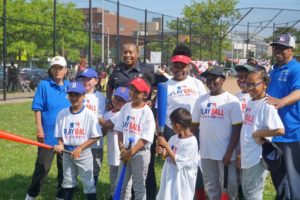 Of course, not every community is experiencing a success story in terms of involved dads, but even when that’s the case, I see signs of hope. The same day I attended the Manny Fiallo luncheon, I also stopped by as representatives of Major League Baseball and the New York Mets’ own Tim Teufel visited the kids of our Far Rockaway RBI program, an initiative that brought little league baseball — an activity traditionally associated with dads — back to the eastern end of the peninsula for the first time in years. Sadly, this is a case in which we wish we had more fathers participating. The absence of fathers is keenly felt. As heartbreaking as that is, though, it’s heartening to see men in the community stepping in to provide the young players with positive male role models to whom they can relate and aspire. The volunteer coaches, filling the role dads would normally play, are so dedicated to these kids, and the children’s faces tell the story of the difference they make — a difference that’s felt not just in the children’s lives, but in the coaches’ lives, too.
Of course, not every community is experiencing a success story in terms of involved dads, but even when that’s the case, I see signs of hope. The same day I attended the Manny Fiallo luncheon, I also stopped by as representatives of Major League Baseball and the New York Mets’ own Tim Teufel visited the kids of our Far Rockaway RBI program, an initiative that brought little league baseball — an activity traditionally associated with dads — back to the eastern end of the peninsula for the first time in years. Sadly, this is a case in which we wish we had more fathers participating. The absence of fathers is keenly felt. As heartbreaking as that is, though, it’s heartening to see men in the community stepping in to provide the young players with positive male role models to whom they can relate and aspire. The volunteer coaches, filling the role dads would normally play, are so dedicated to these kids, and the children’s faces tell the story of the difference they make — a difference that’s felt not just in the children’s lives, but in the coaches’ lives, too.
“I think it’s great,” says Sean Hayes, a founder and current coach. “I get a good feeling out of the kids calling me ‘coach’ and seeing them grow and get better. … Each year they love it more and more.” Their influence will be felt long after the season ends.
On Saturday, our Redfern Community Center, located in the community Manny called home, where his wife, Yolanda Boatright, now works and continues the legacy of influencing the community’s youth, is celebrating Father’s Day by recognizing and paying tribute to its strong men with a day of games, breakfast, and a video created by Redfern students. I know it’ll be another moving event that brings honor to Manny’s name and memory.
This Father’s Day, I hope the media chooses to focus not on the absences, but on the men who do show up, in the most difficult of circumstances, in the toughest of neighborhoods. Let’s make sure these dads and other father figures know: We see you, we see your sacrifices and your love, and we see the difference you make in your communities and children’s lives every single day.
